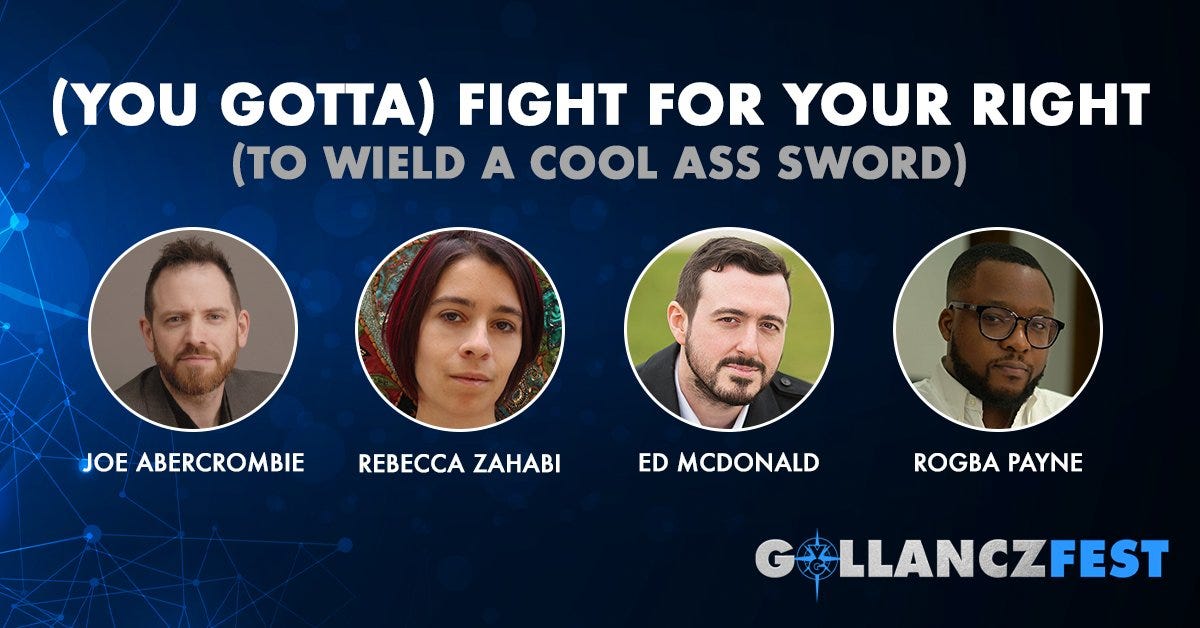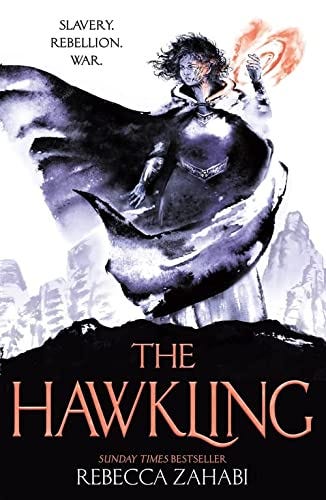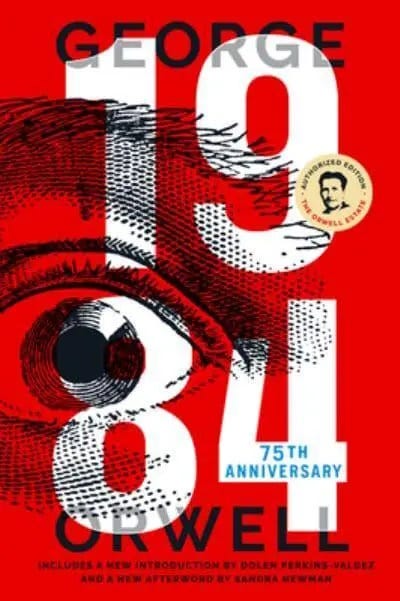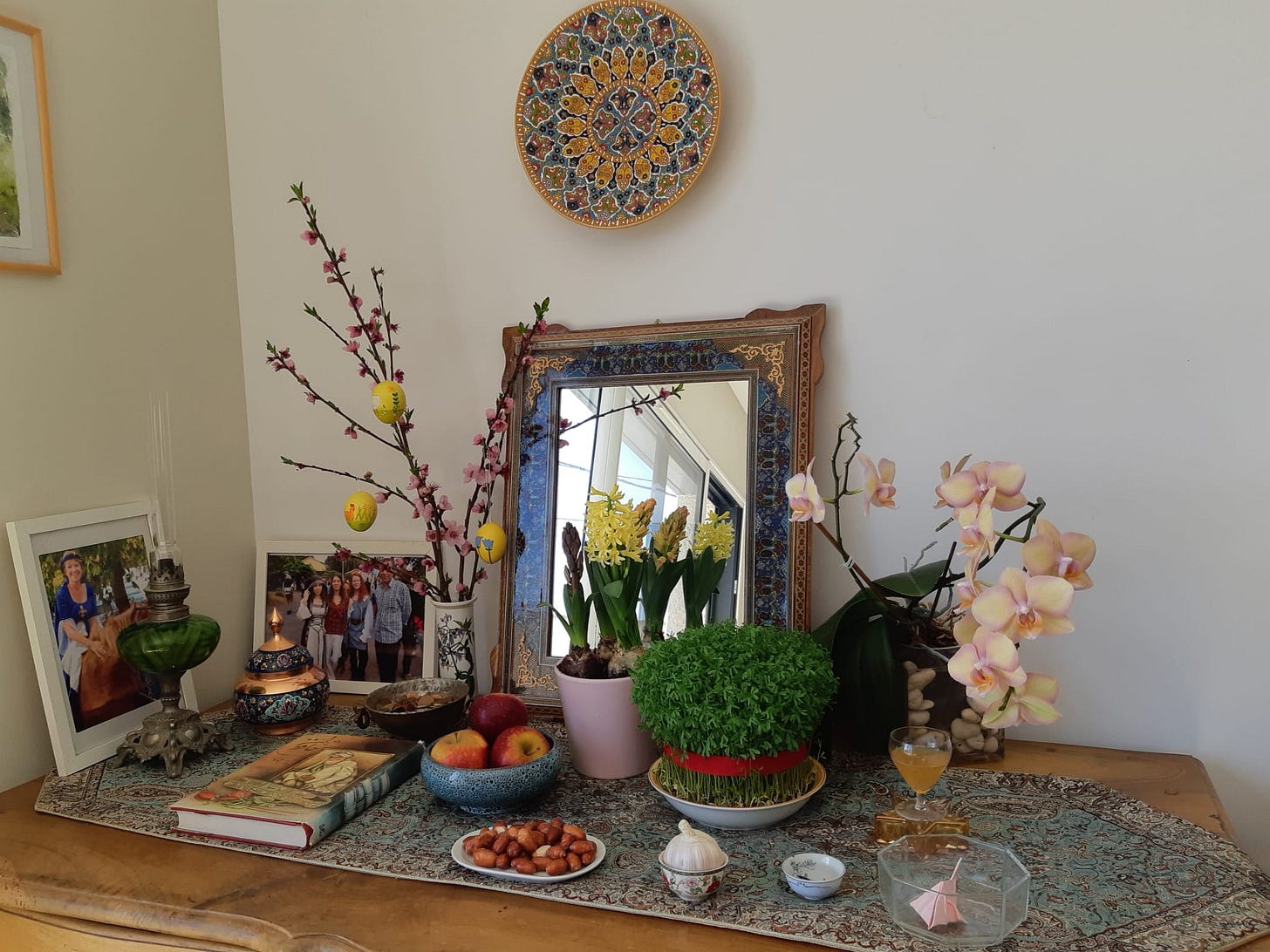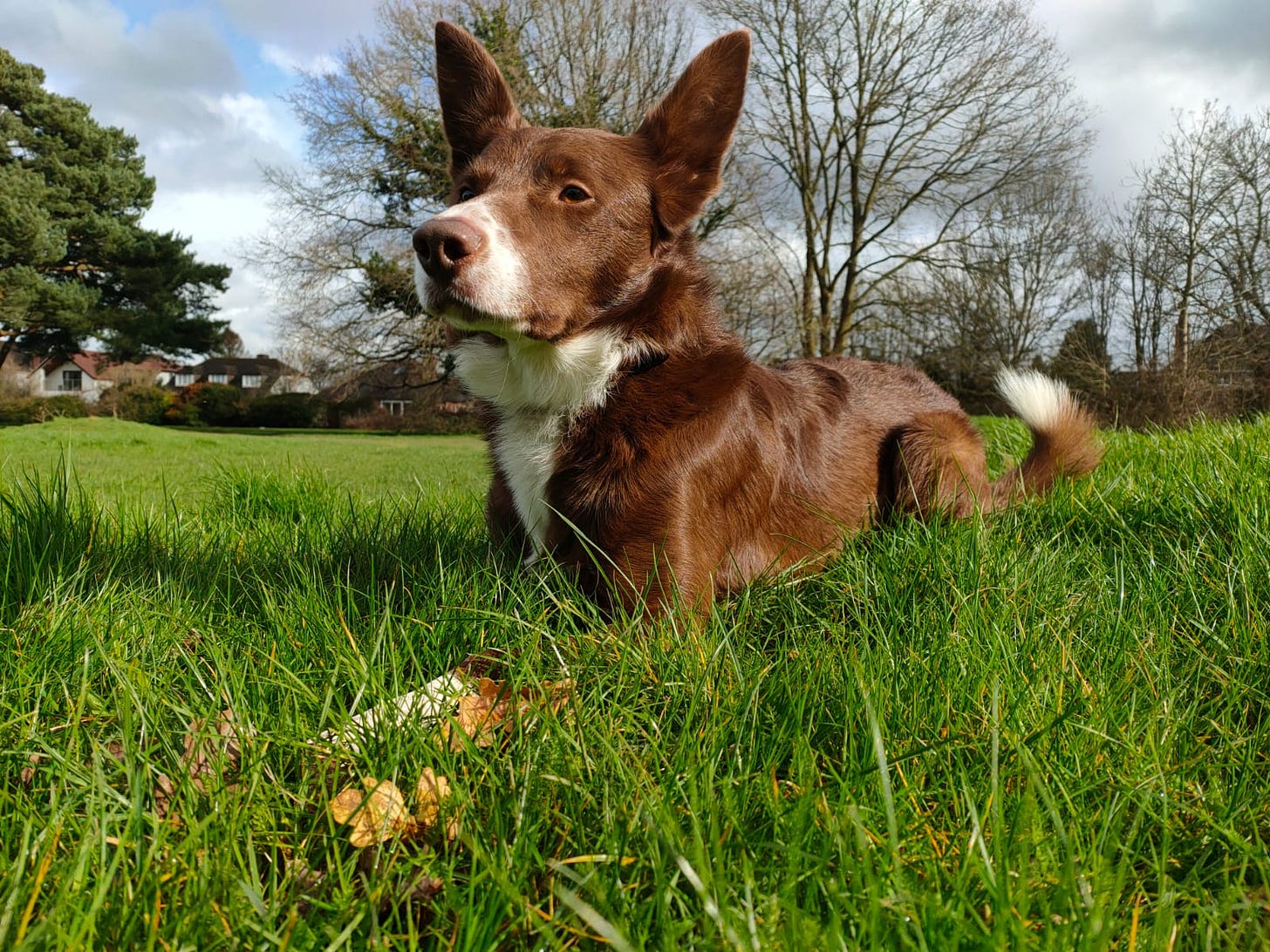Zahabi's Newsletter - March 24
George Orwell's influence, short story writing, GollanczFest, Nowruz celebrations
Dear reader,
This has been a busy month for me! I’ve started a new day job writing for videogames, I’ve been to GollanczFest, and I’m moving houses next weekend. Today, the main article tackles how to ask yourself tough questions as a writer and explore the answers through your fiction. Funnily enough, I found myself uncovering George Orwell’s influence in my work – arguably the master of tough questions with no easy answers.
What’s happening with the book - GollanczFest & Shoreline of Infinity
I attended GollanczFest on the epic fantasy panel: ‘Fight for your rights to wield a cool-ass sword!’ Ed McDonald (The Redwinter Chronicles) was a great chair, throwing us fun oddball questions to keep us on our toes, such as ‘What sort of sword would you wield?’ We got into a chat about my re-enactment experience and how a lot of it helped writing the battles in The Lightborn. Ed practices HEMA which, although it’s different from re-enactment (mostly in that re-enactors fight to make a battle look good for an audience, whereas HEMA practitioners fight to win) still had enough common elements that we could share our experiences.
On the panel we also had Rogba Payne who has his debut novel The Dance of Shadows coming out next month. I felt a lot of sympathy for him, as I’ve been in his shoes, newcomer at an event and talking about my book for the first time. His book is inspired by Nigerian beliefs, an interesting blend of recognisable tropes – the school for warriors, the god killer, the curt but kind love interest – with elements of Nigerian culture that I was less familiar with. The hero’s mother is, hands down, my favourite character in the book.
Last but not least, we also had Joe Abercrombie. It was very strange sitting next to him after the panel for the signings – he’s a huge name, at least in the UK, and his queue went well beyond ours, curling outside the main room. People were bringing their whole collection of hardbacks in suitcases for him to sign, which is both incredibly flattering yet quite a lot of work.
It was fun to have different types of writers all represented on the same panel, and all talking about what they loved about epic fantasy!
The Commute of the Valkyries is out! Issue 37 of Shoreline of Infinity came out as GollanczFest was in full swing. The issue includes the winner of their flash fiction competition, a couple of short stories – including women trying to deal with an afterlife made for men, by yours truly –, and some intriguing non-fiction articles and reviews. I’m notably excited by the sound of ‘Beyond Conventions: Unleashing the Palestinian Struggle through the Lens of Science Fiction’ by Yasmin Kanaan; and ‘Are Comedy and Horror made of the same stuff?’ by Emma Levin.
If this sounds up your street, grab a copy (print or digital or both)!
What’s happening on the page – Asking the Tough Questions
With minor spoilers for The Collarbound & more George Orwell than expected
When asked to pitch Tales of the Edge recently, this was the best I could do:
How do you get rid of the Evil Empire without violence? Alternatively: can you be a pacifist character in an epic fantasy setting?
You’re in a second-world fantasy. You’re living, whether you realise it or not – and you’re going to get clued in as to how bad things are pretty soon – in, if not The Evil Empire, then at least an evil-ish, grimy, not-quite-an-empire but at least a castle that rules over the lands around it. As you go about the city, the tavern, the Nest where the mages live, you get to see the everyday, mundane exploitation of people less fortunate than you. The money in your purse, those practical little horn coins which cancel out the mindmagic, come from dead people.
There are rebels determined to make a change, self-appointed Renegades. They want to change the status quo, and you’re increasingly convinced the status quo is awful. So that’s good. But they’re ruthless killers. They murder, they torture, they destroy. They talk like the good guys – they fight for justice and equality – but they don’t behave like the good guys. And they’ve attacked you before and sent you fleeing far from your home, taking away nearly everything from you, including most of your memories.
And that leaves you in the middle.
What this pitch reveals, I think, is my starting point. I put two characters in an uncomfortable space and left them there. Then I was left to wonder: how do they get out? How do we change the world, in a world where people use and abuse violence, without becoming the villains ourselves?
I’ve always cared for the guards who get callously killed when the heroes run through the palace. I always wonder – but what about the guard’s family? Their mum, their children, their spouse? They were just doing their job. A lot of people, when it boils down to it, are just doing their part, or what they’ve been told is their part, and trying to survive. Sometimes with terrible consequences.
How do you change that? And how do you do so while acknowledging that it’s sometimes your friends – the nice innkeeper who lets you keep a tab; or the fun guy who helped you through your first week in a new place – who are the ones doing the harm?
And it’s all very well to try not to be violent, but then what are you doing for those who are suffering? When it comes to standing beside the pillory where a man is being beaten for grieving his father’s death, what do you say to him? Sure, he has red skin and horns and doesn’t age the way you do, but he’s a person. You have to do something for him.
I strongly believe great fiction doesn’t give answers but asks tough questions. A lot of the authors I love do this well, but one of my early favourites was George Orwell. I read the Animal Farm when I was too young to understand much (I’m not sure I was a teenager yet, I may have been around 10 years old – the memory is a bit fuzzy). Yet I did understand something, and I kept it in mind as the years went by. And then, as a teenager, we read 1984 for school. Once again, the story stayed with me.
As a writer, I like asking myself questions I don’t know the answer to, and exploring the possible answers through my writing. The hard bit is how to write a novel that doesn’t devolve into a pamphlet. How to explore an idea without trying to force an answer onto the reader. And also, how to tackle the subject head-on, even those icky bits you as a writer don’t want to engage with or think about too much – those bits that make you uncomfortable, that nag at you.
One solution is to give different characters different answers and to let them dish it out. With Tales of the Edge, what I did is that I distributed some of the obvious solutions between the factions, and then I let it all simmer. The only way to avoid the writing feeling preachy, when doing so, is to properly engage with each opinion as a writer: when writing Hawk and the Renegades, I truly believe that only violence can disrupt abusive power structures. I make myself believe it, or empathise with that point of view, enough so that I can write those characters. When writing Tatters, I lean into the fact that I’m a pacifist at heart, who really doesn’t want to hurt anyone, even if that means remaining passive in the face of violence. When writing Isha, I try to have a pragmatic approach, one that admits that avoiding all violence is impossible, even though that doesn’t make violence the solution.
Although Orwell isn’t directly referenced in Tales of the Edge, I’ve been surprised at how often he makes his appearance in my writing in general. One motif I’ve been surprised to spot, for example – and one I definitely didn’t include consciously – is the image of a boot stamping on a human face. I’m quite horrified to discover how often I include a foot squishing a face in my writing. It’s always the worst moment, the strongest transgression, or at least the moment when the main character realises the horror of what’s happening; when the reality of it hits. I recently did it in a short story, noticed it, and then noticed it again when I was re-reading the copy-edits for The Lightborn.
I wonder how much I’m grappling with this famous quote from 1984: ‘If you want a picture of the future, imagine a boot stamping on a human face – forever.’ Obviously, this is a brutal image, that isn’t only present in Orwell’s work. The Jewish Museum in Berlin, for example, has a part with small human faces carved in iron, which the visitors walk over. It sent shivers down my spine the first time I visited it.
But I didn’t want to write 1984. I remember disliking the end, on my first read. I didn’t like the nihilistic conclusion, the fact that, when all is said and done, the system wins, the individuals are crushed. When I was writing, I wanted to treat systemic violence seriously, but I wanted to overcome it.
The ending is an important part of a story. I’d argue it’s the most important, and the most often overlooked. When struggling to grapple big ideas, the ending will often give the reader a sense of closure – and to do so, the author does have to pick a solution. Maybe not a satisfactory solution, maybe it can feel bittersweet, or even wrong, but a resolution has to be achieved all the same. Which is why, writing The Lightborn, the third and final volume of Tales of the Edge, I struggled to make sure everything fell into place. I knew very early on the sort of ending I wanted, but making it happen was harder.
I remember reading a collection of George Orwell’s essays, entitled Fascism and Democracy, which included a sentence to this effect: that totalitarian governments, because they are powerful structures that hang onto power, have historically never been dismantled without the use of force. While writing The Lightborn, this idea came back to mind. I remember wondering if maybe he was right, maybe there was no way the mages would relinquish power without brutality. That maybe my characters, even the pacifist ones, should resign themselves to this.
I can tell I was worried when I re-read the manuscript. Lal briefly admits, about Hawk and her Renegades waging war to take over the Nest, that: ‘She is right. Maybe she was always right.’
I’ve not found an answer – that would be defeating the purpose. But I’ve found answers, possibilities, options, that I hope make both for a good story, that the readers will enjoy, but also for an interesting place to start thinking about what we want to do, as people, with our own high mages, with our own in-baked injustice.
What’s happening with me – Happy Nowruz
A belated Nowruz Mobarak! The first day of spring, on the 21th March, is also the Iranian new year. Below you can see my family’s haft sin, a table with seven elements starting with ‘S’. Unfortunately I wasn’t able to do my own – what with moving houses – but my family’s one is pretty successful, I feel.
I actually wrote a short story about Nowruz for PodCastle a few years ago, entitled ‘Two Siblings, Seven Fish’. If you feel like learning more about that celebration and reading some of my short story writing for free, you can read or listen to it here.
What else does spring entail? Long walks in the park, of course! As soon as there’s a ray of sun, Sancho is out like a shot.




